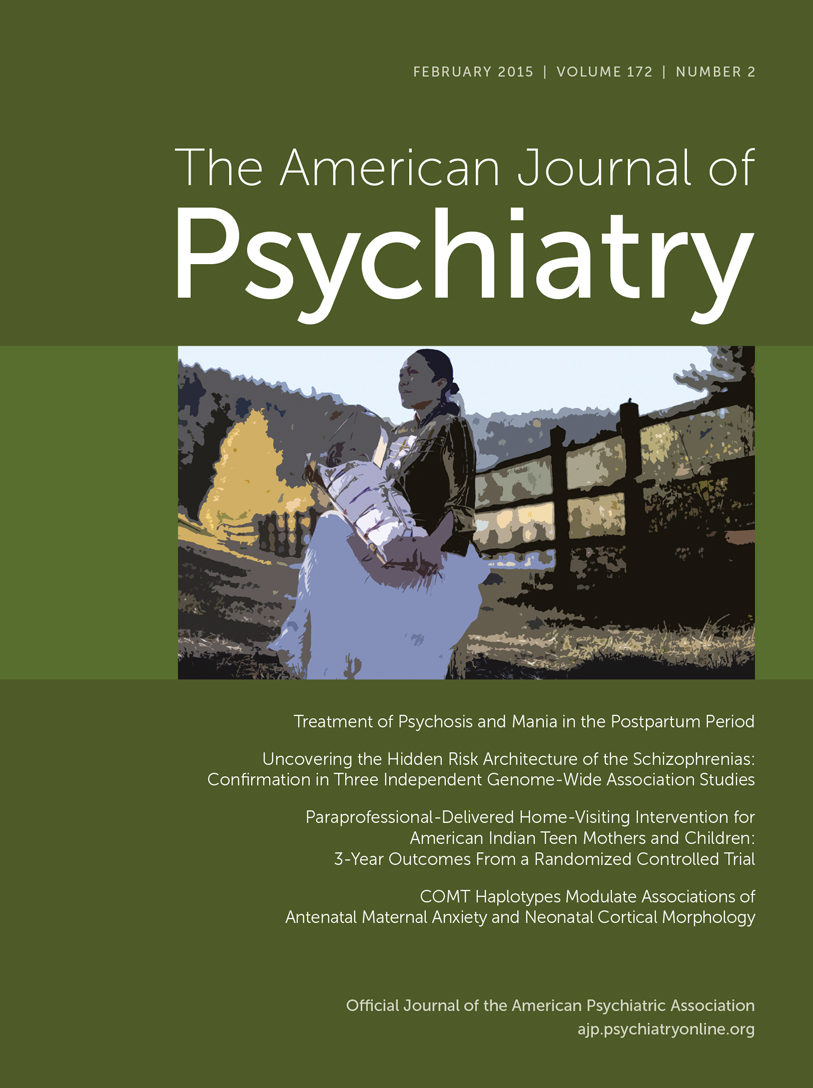Uncovering the Hidden Risk Architecture of the Schizophrenias: Confirmation in Three Independent Genome-Wide Association Studies
Abstract
Objective:
The authors sought to demonstrate that schizophrenia is a heterogeneous group of heritable disorders caused by different genotypic networks that cause distinct clinical syndromes.
Method:
In a large genome-wide association study of cases with schizophrenia and controls, the authors first identified sets of interacting single-nucleotide polymorphisms (SNPs) that cluster within particular individuals (SNP sets) regardless of clinical status. Second, they examined the risk of schizophrenia for each SNP set and tested replicability in two independent samples. Third, they identified genotypic networks composed of SNP sets sharing SNPs or subjects. Fourth, they identified sets of distinct clinical features that cluster in particular cases (phenotypic sets or clinical syndromes) without regard for their genetic background. Fifth, they tested whether SNP sets were associated with distinct phenotypic sets in a replicable manner across the three studies.
Results:
The authors identified 42 SNP sets associated with a 70% or greater risk of schizophrenia, and confirmed 34 (81%) or more with similar high risk of schizophrenia in two independent samples. Seventeen networks of SNP sets did not share any SNP or subject. These disjoint genotypic networks were associated with distinct gene products and clinical syndromes (i.e., the schizophrenias) varying in symptoms and severity. Associations between genotypic networks and clinical syndromes were complex, showing multifinality and equifinality. The interactive networks explained the risk of schizophrenia more than the average effects of all SNPs (24%).
Conclusions:
Schizophrenia is a group of heritable disorders caused by a moderate number of separate genotypic networks associated with several distinct clinical syndromes.



